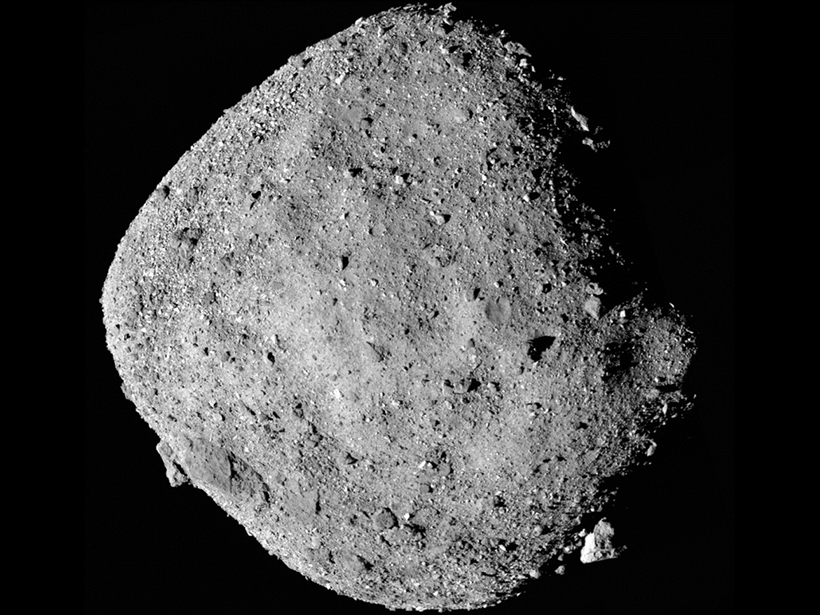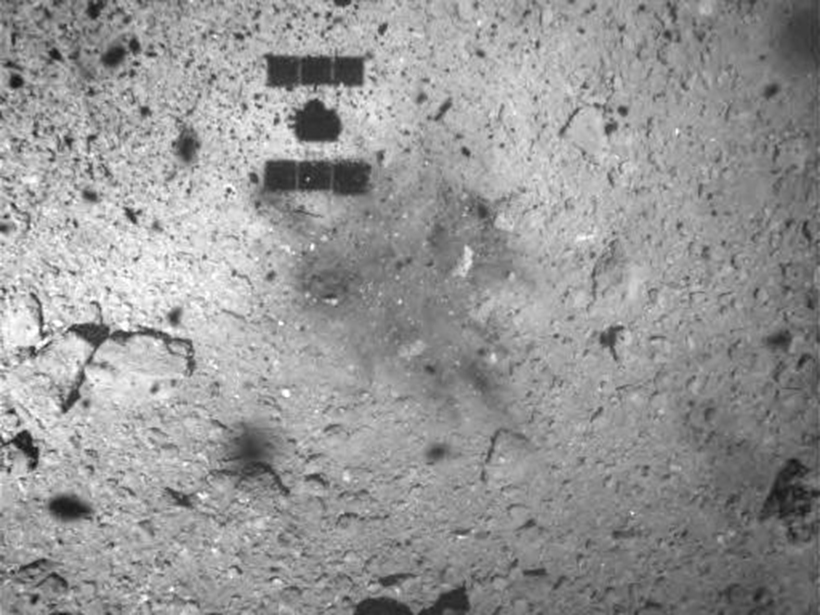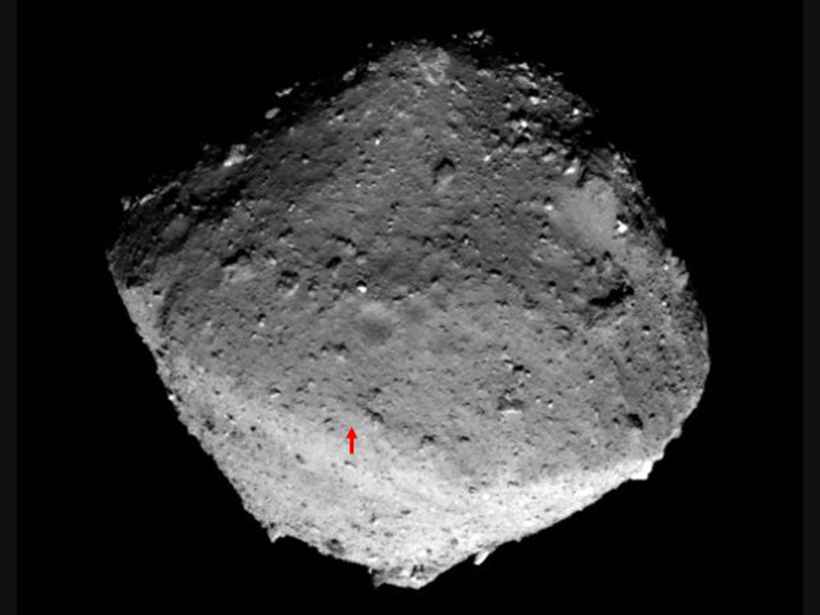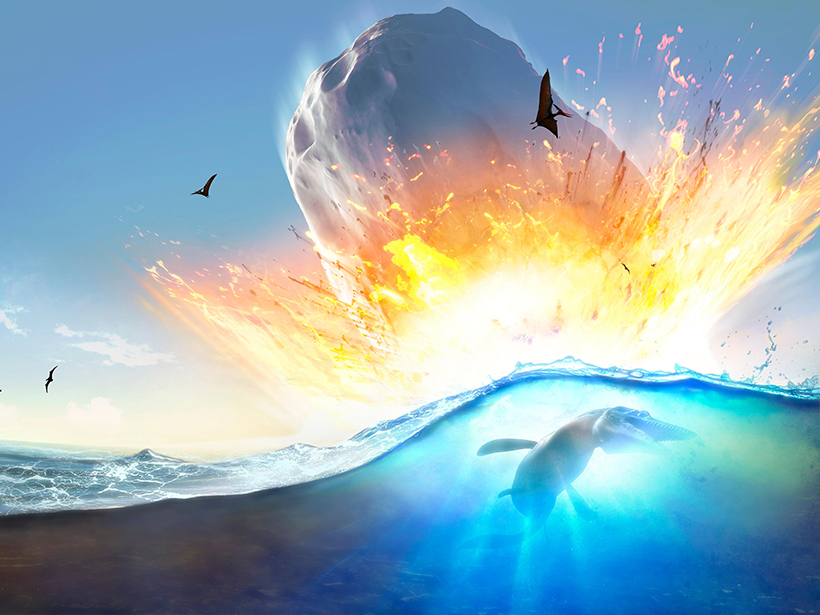Hydrated minerals on near-Earth asteroids offer both scientific revelations and economic incentives for companies looking to refuel satellites with material from nearby space.
asteroids
A Target Before Shooting Ryugu
The asteroid’s rough surface surprised Hayabusa2’s mission scientists. So they pulled out their spare gun and shot an “asteroid” at home first.
Asteroid Mission Attempts Touchdown, Sample Grab
Hayabusa2 will fire a metal bullet into the asteroid surface to eject material that will then be collected. The mission will return the samples to Earth in late 2020.
How Long Can Celestial Bodies Retain Ice?
A new model suggests that many objects in the outer asteroid belt may still harbor deposits that formed around the time of their accretion.
Huge Global Tsunami Followed Dinosaur-Killing Asteroid Impact
The cataclysmic Chicxulub impact roughly 66 million years ago spawned a tsunami that produced wave heights of several meters in distant waters, new simulations suggest.
Exploring Planetary Breadcrumbs One Asteroid at a Time
Six ongoing and future missions explore the variety of asteroids in the solar system, seeking to uncover what makes each of them special.
Dinosaur-Killing Asteroid Impact Made Huge Dead Zones in Oceans
The discovery reveals similarities between the extinction event that ended the Mesozoic Era and human-driven global warming.
Are We Prepared for an Asteroid Headed Straight to Earth?
A century after an asteroid crashed into Tunguska, Siberia, experts discuss the current lineup of missions to study asteroids and mitigate future disasters should another object from space hit Earth.
After Obliteration, How Long Until Life Returned?
By studying the Chicxulub crater associated with the extinction of more than 75% of species then on Earth, researchers have begun to fill in a timeline for life’s rebound after the cataclysm.
Jacobson Receives 2017 Ronald Greeley Early Career Award in Planetary Science
Seth A. Jacobson will receive the 2017 Ronald Greeley Early Career Award in Planetary Science at the 2017 American Geophysical Union Fall Meeting, to be held 11–15 December in New Orleans, La. The award recognizes “significant early career contributions to planetary science.”









